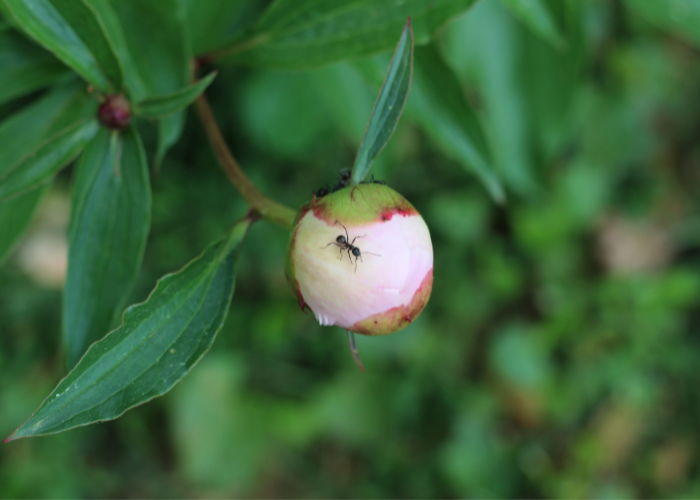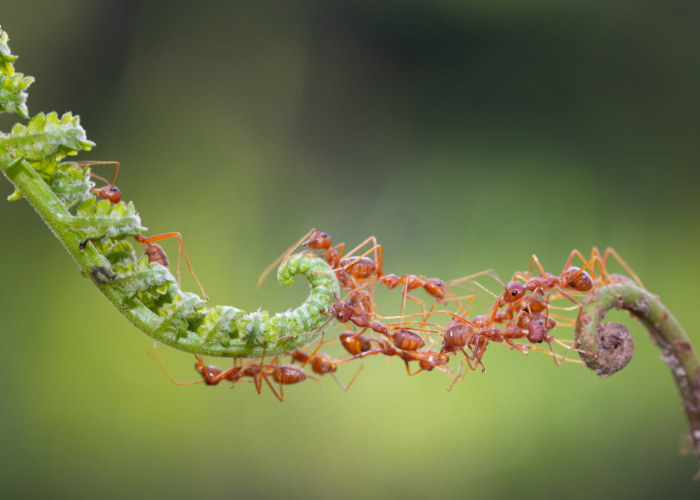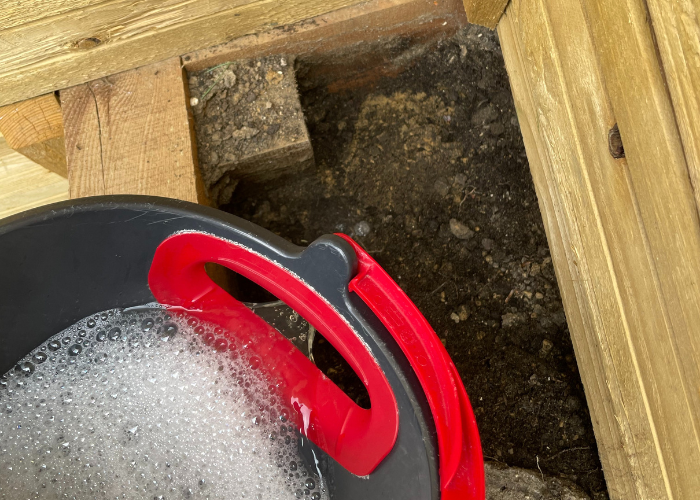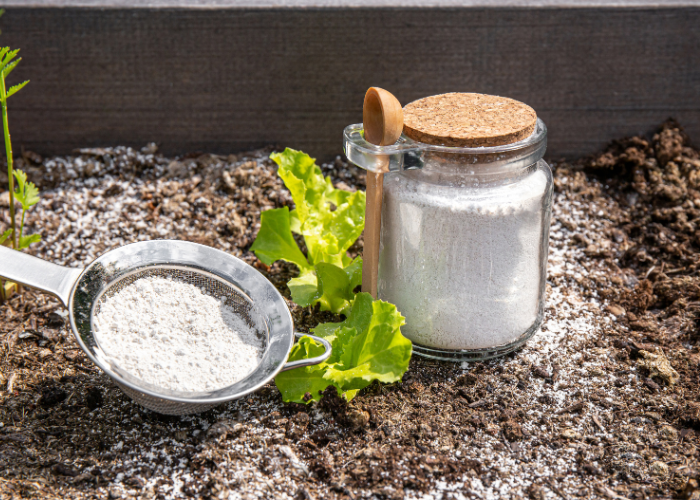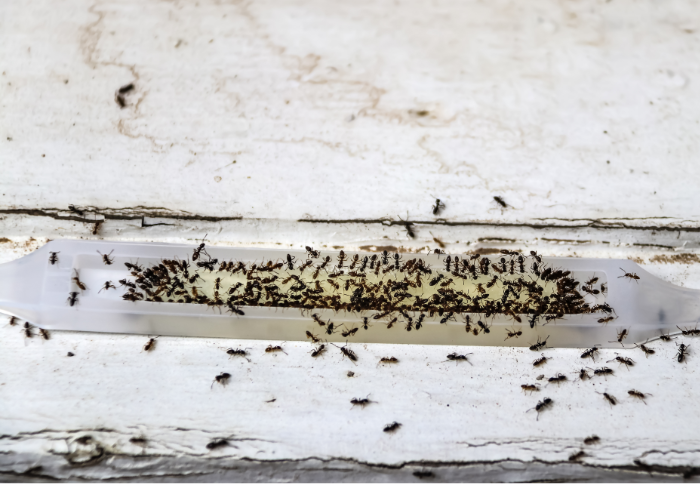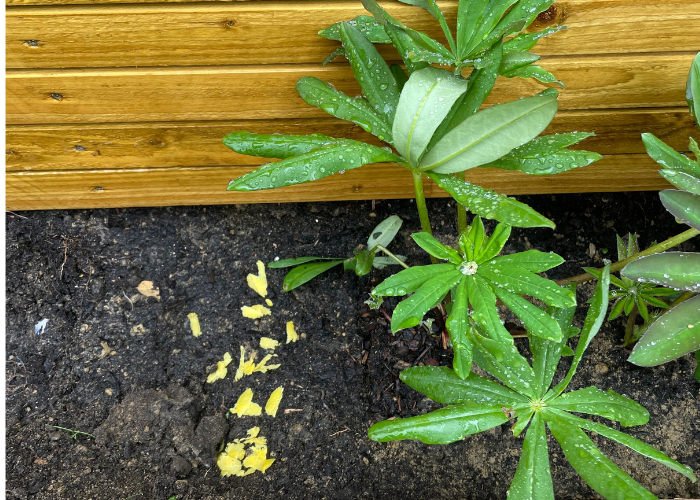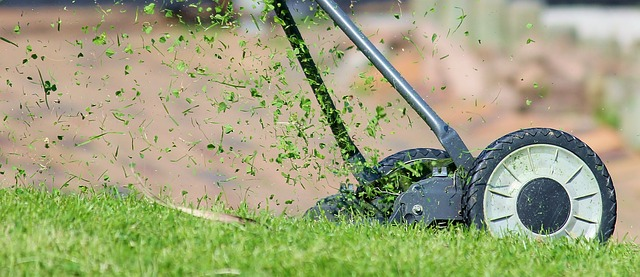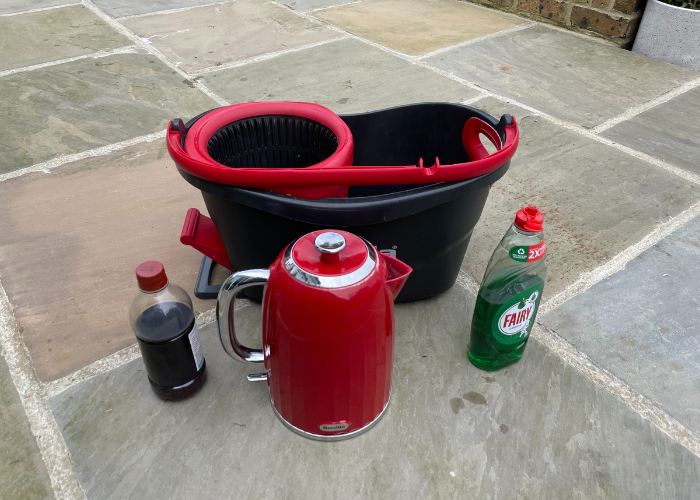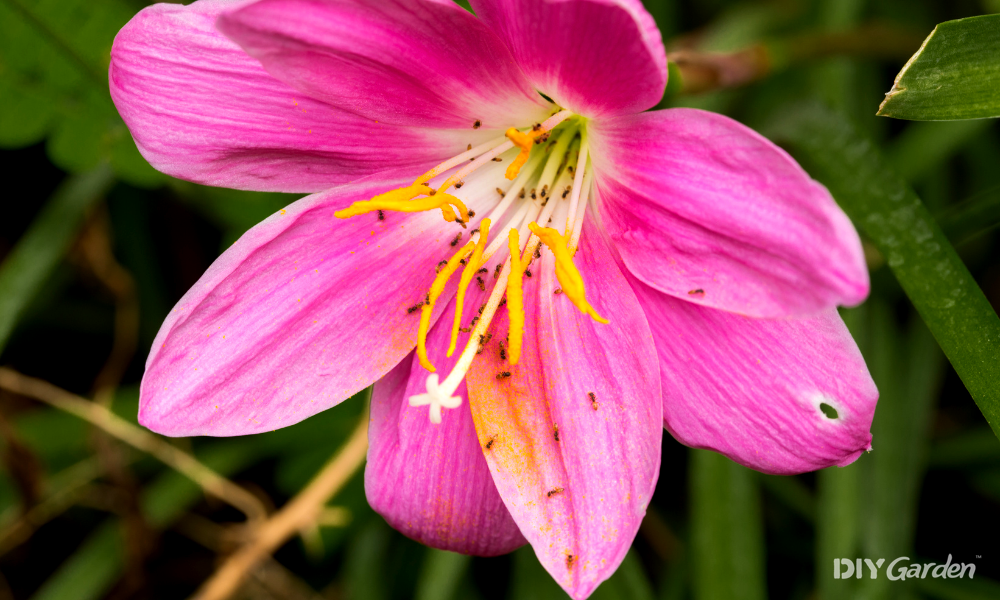
Are you tired of ants ruining your beautiful garden, but hesitant to use harsh chemicals that could harm your plants or the environment? Worry not! In this blog post, we’ll explore eco-friendly ways to get rid of ants in the garden naturally and prevent them from returning, ensuring a thriving, pest-free oasis for you to enjoy.
In This Guide You’ll Learn
- Understand ant species, behavior and effects on gardens to effectively manage infestations.
- Use natural methods such as boiling water, diatomaceous earth application and homemade baits & traps for control.
- Take preventative measures like proper lawn care and eliminating food sources. Professional pest services may be necessary if natural methods fail.
Understanding Ants in the Garden
Before tackling ant infestations, it is important to learn about the type of ants present in your garden.
Common varieties such as black garden ants, pavement ants and carpenter ants can have both positive or negative influences on plants depending upon their behavior. They assist with pollination, but may also cause destruction when supporting an aphid population, which reduces overall healthiness.
To prevent these issues, it is essential that you understand the life cycle and effects of each species before implementing any ant control strategies.
Types of garden ants
Identifying the kind of ant that has invaded your garden is critical in deciding what steps to take in regulating their numbers.
Red ants (Myrmica rubra) and small black ants (Lasius niger) are among the most common species seen within gardens, yet there are a variety of other types as well which have different behaviors and levels of impact on our yards.
Knowing these details can help you decide how best to manage them since each specie requires its own approach for population control.
Ant behavior and life cycle
Ants are highly interesting and have elaborate societies with distinct castes.
Led by a queen, the colonies consist of workers, soldiers, and drones. Each taking on certain duties like foraging for food to sustaining their ant nest or shielding against threats from outsiders.
Communication among ants is achieved through pheromones that act as trails that lead back to the dwelling area letting other members know where they can return home safely.
Knowing about ant behavior patterns and life cycles aids in locating breeding grounds and how best to halt their activities efficiently.
Positive and negative effects on gardens
Ants can be both beneficial and harmful to a garden. They aerate the soil,reducing pests, which contributes to a healthy atmosphere for plants. They also harbor sap-sucking bugs such as aphids that pose significant risks.
Ant nests built around root systems by ants will hinder plant growth and increase their susceptibility to ailments. It is critical to manage these positive & negative impacts carefully in order to sustain an optimal environment in your backyard.
Natural Ant Control Methods
It’s time to take a closer look at how we can manage ant populations without the use of potentially hazardous substances.
Utilizing techniques such as boiling water, applying diatomaceous earth and creating homemade bait or traps are all effective yet environmentally-friendly methods for controlling ants in your garden.
By taking advantage of these options, you will be able to efficiently regulate ant numbers while keeping chemical usage at a minimum, an outcome that benefits both us and our little adversaries alike!
Boiling water technique
Pouring boiling water over ant trails and ant hills is a straightforward yet successful way to kill ants.
Caution should be taken though as you can suffer from burns or scorch the grass and soil, leaving it wet in some areas of your lawn.
If this heated liquid doesn’t reach all the way down into their hideouts where queens usually nest, then eliminating them might not work out properly either. Nevertheless, using hot water offers an easy natural remedy for tackling any kind of ant infestation without much hassle at all!
Diatomaceous earth application
Diatomaceous earth is a powerful natural substance made up of fossilized algae that can be used to destroy ants by sprinkling it around the ant’s nests.
Its microscopic shells contain jagged edges which pierce through an ant’s body, dehydrating and eventually killing them within two weeks’ time without posing any risk whatsoever to plants or animals on your property.
To maximize effectiveness, this powder should only be applied when the soil is dry, as wet surfaces may require more time for results.
Homemade baits and traps
If you want to get rid of ants without using toxic chemicals, making homemade baits and traps is a great option.
To make an ant bait, use either borax with sugar, boric acid mixed with sugar or baking soda paired up with the sweetener as well. One can try combining peanut butter along with honey and grease for another type of bait.
To create your own trap just combine some sugar in water combined vinegar inside a jar – it’s simple but effective!
These strategies are harmless not only for people, but also for nature, yet they help take back control over any garden that has been invaded by these little creatures.
Plant-Based Repellents
Creating an ant-control plan can involve using plant-based repellents such as cinnamon barriers, citrus peels and sprays, and peppermint oil.
These natural solutions are safe for the environment while still keeping ants away from your garden space.
Having plants with peppermint oils in strategic areas around the garden will create a barrier that stops any unwanted visitors from entering.
This method of prevention is ecofriendly yet effective at preventing infestations without causing harm to other creatures or vegetation in your green sanctuary!
Cinnamon barriers
Cinnamon can be used in an uncomplicated and natural approach to keep ants away.
To do this, you can apply cinnamon powder as a boundary around the area that needs protection, stick in some cinnamon sticks or use cotton swabs dipped in essential oil of cinnamon for repelling them.
Though it is not always guaranteed successful, having these barriers will assist in discouraging those pests from taking over your garden while helping reduce their population significantly.
Citrus peels and sprays
Citrus peels and sprays are an effective way to get rid of ants in the garden.
To make a citrus spray, mix vinegar with dried out citrus peel or combine lemon juice and water for all-purpose application.
You can also grind the peels into a fine powder that when sprinkled along entrance ways will repel any unwanted insects due to its active oil content thus preventing them from returning.
Peppermint oil and plants
Peppermint oil and plants can act as an effective method of repelling ants.
By spraying peppermint oil around your garden or directly onto the ants, you can disrupt their communication methods which relies on scent markings to find food sources or make trails.
Consider planting some peppermint plants in your garden area, this should help keep any ants away from entering it!
Eco-Friendly Solutions
You can rid of ants and take care of your garden environment with eco-friendly solutions like beneficial nematodes, Orange Guard spray, or a cornmeal, borax and honey mixture.
All these natural approaches help control ant populations without any harm to the ecosystem surrounding them.
Such techniques provide you an effective way to get rid of pesky insects while keeping nature healthy!
Beneficial nematodes
For organic ant pest control in the garden, nematodes can be employed as an effective solution.
These microscopic roundworms target insect infestations without endangering other creatures living beneath the soil surface.
Fill a spray bottle with beneficial nematodes and mist directly onto affected areas for safe yet reliable results that will not harm your plant’s health.
Employing these tiny worms is an effortless natural way to manage pesky ants while preserving both plants and environment alike!
Orange Guard spray
Orange Guard is a non-toxic, environmentally friendly insecticide designed to repel ants naturally.
This product harnesses the power of orange peel extract, which makes it safe for use around children and pets alike.
To utilize Orange Guard’s pest control capabilities, simply apply it in or near areas where you want to prevent ants from entering your garden area.
It provides an easy way of controlling ant activity without using any toxic chemicals, giving peace of mind that one can be certain they are keeping their environment clean and secure at all times!
Cornmeal, borax, and honey mixture
This natural ant repellent can be used to control and eliminate entire colonies quickly.
The mixture of cornmeal, borax, and honey will work its way into the anthills where it is ingested by the ants before being taken back to their nest within two or three days. This eco-friendly option means you won’t have to resort to harsh chemical treatments.
Caution must always be exercised when handling substances such as boric acid, as they are toxic if inhaled or swallowed accidentally by humans or animals alike.
Preventative Measures
In order to have a healthy and ant-free garden, preventative measures should be put in place.
To achieve this goal, one must practice proper lawn maintenance along with eliminating food sources as well as taking notice of potential infestations early on. This way your flowerbeds will stay beautiful while avoiding the unwanted presence of ants.
Not only can these steps deter possible infestations, but they also promote an overall prosperous and attractive garden space for you to enjoy!
Proper lawn care and maintenance
Maintaining a healthy lawn will reduce the likelihood of ant and other pest infestations.
Regular activities such as mowing, watering, weeding, fertilizing and aerating are essential for optimal lawn care.
This creates an atmosphere not conducive to ants or other garden pests, which can result in higher chances of invasions otherwise.
Taking action on weeds quickly plus ensuring good drainage is also vital to keep these insects away from your yard.
Eliminating food sources
To prevent ant infestations, it is best to eliminate any sources of food that they may be attracted to such as crumbs and pet food.
By ensuring your space remains clean, the chances of experiencing these kinds of problems can be greatly reduced.
Keeping foods sealed in airtight containers will also help discourage them from coming into contact with your living environment and wiping up spills or removing leftover items quickly should become a regular routine for you.
Regularly sweeping and mopping floors along with countertops are additional steps which can aid in preventing ants from infiltrating spaces around the house or outdoor area.
Monitoring and early intervention
It is essential to take action at the earliest possible moment and observe for indications of ant presence, such as mounds, trails or nests.
Utilizing baits and traps can help you keep track of their activity. If an infestation is spotted quickly, act on it with natural deterrents or professional pest control assistance in order to avoid it.
Spreading, which can save time & resources eventually. Monitoring & early intervention are key elements when it comes to preventing extensive issues due to ant infestations.
When Natural Methods Aren’t Enough
Natural methods to get rid of ant infestations may not always be successful.
If this is the case, other alternatives such as chemical pesticides, professional pest control services and garden/landscape renovation need to be utilized in order for it to have an effective outcome.
Even though these solutions are less eco-friendly than natural measures, they provide a more permanent solution that lasts longer when tackling your ant issues.
READ NEXT: The UK’s Best Ant Killers
Chemical pesticides
Chemical pesticides are a potent instrument for handling ant infestations, although they have possible drawbacks such as damage to the environment and potential threats to human beings and animals.
Whenever you use chemical insecticides, it is imperative that you follow the label instructions carefully along with putting on appropriate safety equipment like protective clothing and guaranteeing suitable ventilation.
Although these chemicals may be useful in eliminating or managing pests if natural means fail, using them should always be done only as a last resort.
Professional pest control services
If you have an ant problem, investing in professional pest control can be a better option than do-it-yourself methods.
They offer more effective and longer lasting results as the experts are well equipped to deal with infestations quickly and discreetly while ensuring safety for everyone involved.
Although it may cost slightly more initially compared to DIY solutions, it will save you time and effort as these specialists know how best to tackle your ant problem so that long term success is achieved, something which might not happen if taking other approaches.
Lawn renovation and landscaping
Renovating and landscaping the lawn can help address ant infestations by improving the condition of your garden. By getting rid of dead grass, moss or thatch, then planting new seed can bring a worn-out patch back up again.
READ NEXT: The Best Lawn Scarifiers to Remove Moss & Thatch
When it comes to designing around your property for pest prevention purposes (like with ants), proper renovation and landscaping is key.
Not only will this give you existing protection from current issues, but also create an environment less suitable for you. Invasions in future times too!
Summary
By understanding ant behavior and employing natural control methods, such as plant-based repellents and other eco-friendly solutions like proper lawn maintenance to eliminate food sources, you can get rid of ants in your garden.
Chemical pesticides or professional help may be necessary if natural methods fail. With these tools at hand, it is possible to effectively protect the garden’s beauty from pests without causing harm to the environment.
Frequently Asked Questions
How do I permanently get rid of ants in my garden?
The best way to permanently eradicate ants from your garden is by using a combination of ant traps and bait. Place some small trap devices in or around the nests, as well as setting out honey – or other attractive baits – near the affected areas. This should cause a steady reduction in their numbers until they disappear completely. Gradually over time, you can expect fewer and fewer unwanted visitors!
What do ants hate the most?
If you have experienced an ant infestation, cayenne pepper and black pepper can help control it. Sprinkling either of these spices around the area will keep them away as they do not like their taste or smell. Placing a barrier with this spice blend may be enough to block out ants completely.
This easy solution is one way to deal with the problem in your home without having to resort to toxic chemicals.
How do I get rid of ants outside permanently naturally?
Getting rid of ants outside naturally is a simple task if you use the right materials. Utilizing diatomaceous earth, baking soda or baby powder, boiling water, borax and boric acid, soapy water, garden hose water, or artificial sweeteners can help you safely and permanently eliminate them from your environment.
These materials are all natural and non-toxic, so you don’t have to worry about harming your family or pets.
What naturally makes ants go away?
Using natural deterrents around your home, such as salt, baby powder, lemon juice, chalk, vinegar, bay leaves, cinnamon, or peppermint oil, is an effective way to make ants go away. Lay these out in areas where you see ants and it should keep them from coming inside your house.
How to get rid of ants?
To ensure that you get rid of ants once and for all, it is important to combine preventing their entry with natural deterrents such as white vinegar and regular cleaning. Vacuuming up food scraps, wiping down surfaces where liquids have been spilled and keeping moisture levels low using dehumidifiers can go a long way in avoiding ant infestations. Setting out fans or other devices which promote airflow will help create an environment they do not want to be in. Taking these preventative steps should effectively keep them away from your home!
